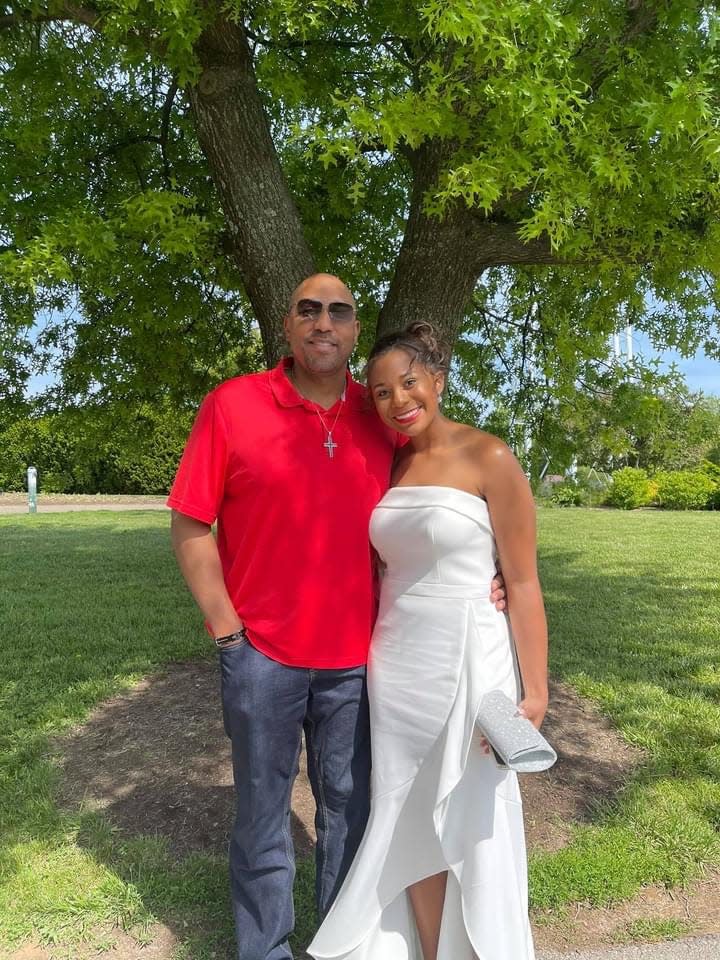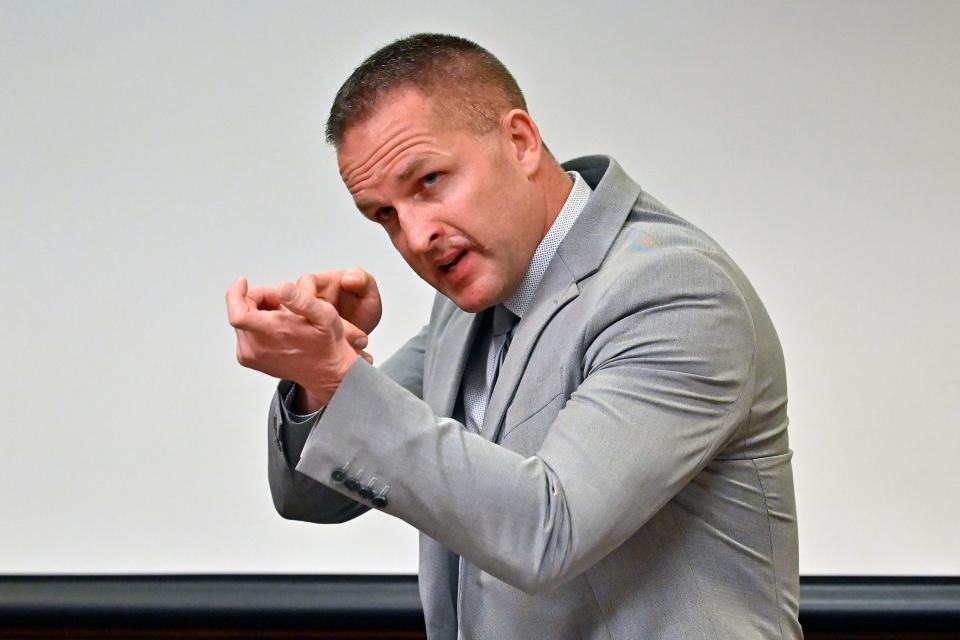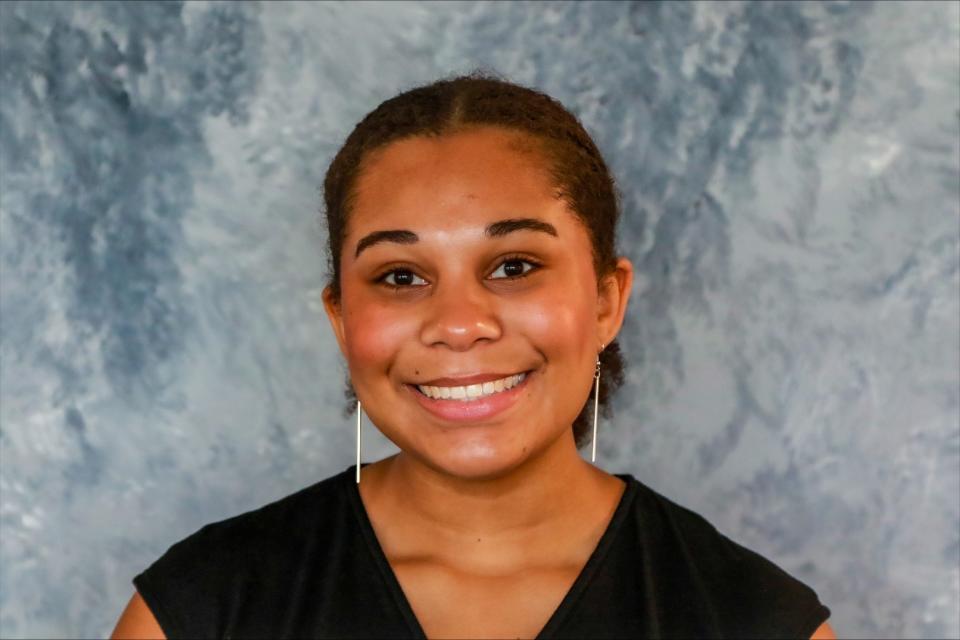My dad was a police officer, but not like Brett Hankison. I can still be Black and back the blue.
When I heard news of the Brett Hankison trial, I found myself at a crossroads of identity. I am a young Black woman who supports the police because I am the daughter of a retired, Black, Kentucky State Police Major. I will always respect how my dad spent 25 years sacrificing his life for the betterment of our community, and yet I will never condone police brutality, most frequently and disproportionately against people of color. Rather than fully supporting the Black or blue side — as society pressures me to do — my identity is caught in the middle of what I call the “navy area.” Being “navy” means that you support law enforcement's efforts to establish safer communities but also recognize the rise of police brutality against the Black community.
Breonna Taylor's murder made me question my identity and safety as a Black woman
The night of March 13, 2020, in Louisville, Kentucky, was especially disturbing for me as a Black woman. The fact that Breonna Taylor, a woman who looked like me, was murdered in her home left me fearful. This traumatizing event made me question if my identity as a Black woman was enough to warrant my death by the hands of those who were supposed to “protect” me. When my friends started protesting against the police in downtown Louisville, I couldn’t begin to decide whether I should join them. I still believed that the police were fundamentally protective, even as this new, deeper fear manifested.
Malcolm X predicted it. Montgomery brawl isn’t just about memes.
The tension between the Black community and police officers is understandable. Over the years, many Black people have fallen victim to police brutality, and the interactions between Black people and police officers have raised questions on whether the police are protecting or punishing us.
Brett Hankison is just one police officer. My father is not like him.
The United States government believes the same notion and is working towards protecting the foundation of police officers by reprimanding the reckless actions of Brett Hankison, who sprayed bullets into Taylor’s home. And yet, Hankison is just one police officer. His deplorable actions should not write the narrative for all police officers. If federal prosecutors decide to retry Hankison, I hope the jurors will recognize the atrocity in his actions and convict him.

Consider the case of my father. At the time of Taylor’s murder, I reflected on the dynamic between police officers and Black people. As I considered my father’s identity, as both a Black person and a police officer, I imagined the difficulty of that intersectional identity. Seeing people on the news who look like you die by the hands of those wearing the same uniform as you is not an easy reality to accept.
My dad retired and became a criminal justice professor
That’s why my father now works as a professor at the only historically Black university in Kentucky. After serving as a trooper, he obtained a doctorate in criminal justice to give back to the community that ignited his love for social and racial justice. Through his work, my dad attempts to bridge the gap between police officers and the Black community.
RAARE Conference's real problem: The event seeks profit, not racial equity and change
My father’s identity as a Black man and a police officer allows him to understand the importance of police reform and how diversity recruitment and representative community policing can unify police officers and the Black community. If the culture of policing can change, then the outcome of interactions between minorities and police can change as well. His perspective inspired me to think of police brutality as a catalyst for police reform rather than a solidified monstrosity of evil that can only be changed by abolishing the police.

Louisville needs police reform and reparations for brutality
Solace between the Black community and police officers can only exist with internal police reform and external legal reparation. Only reform and reparation can dwindle the occurrences of police brutality against Black women, a reality that scares me to admit is prevalent in society today.
I support my Black brothers and sisters and will continue to fight for our protection in society. I also support those who wear blue uniforms and leave their families every day to protect our communities. You can still be Black and support the blue by not condoning bad conduct by law enforcement but supporting those who put their lives on the line to keep us safe. Don’t listen when society tells you to “choose a side.” You can stand in the “navy area” and still participate in conversations about police reform.

Anna Williams (she/her/hers) is a third-year English and political science student at the University of Louisville. Anna writes creatively for the Louisville chapter of the National Association of Black Journalists and as an opinion writer for UofL’s student newspaper The Louisville Cardinal.
This article originally appeared on Louisville Courier Journal: Hankison doesn't represent police like my dad. He's why we need reform

